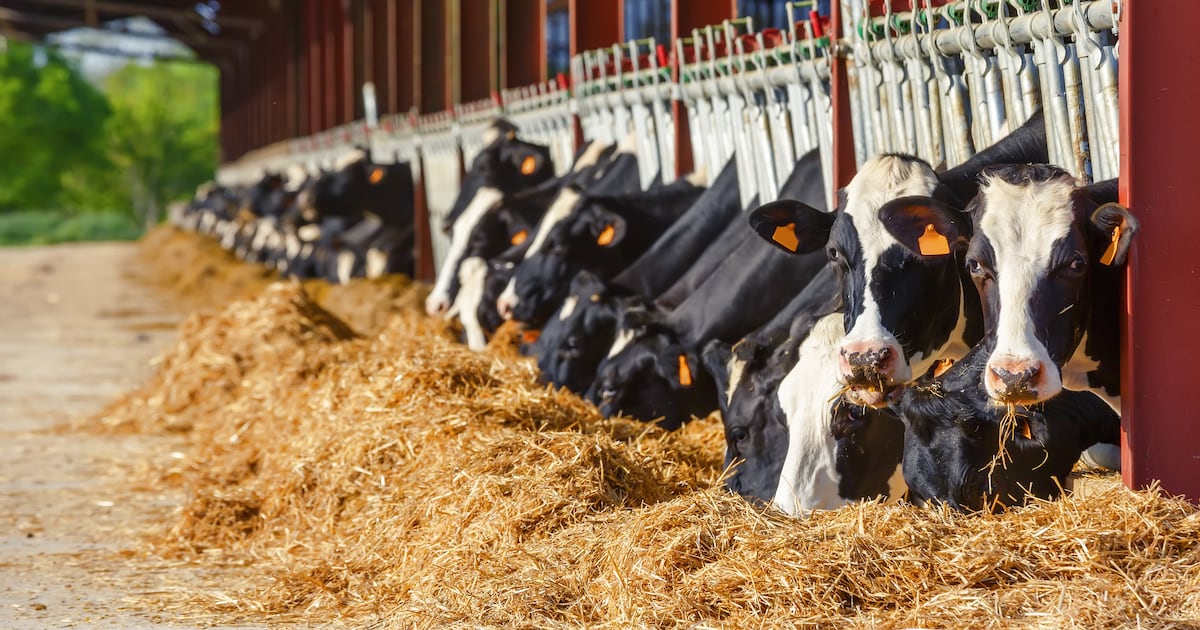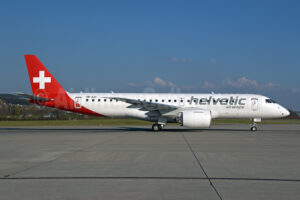The Environmental Defense Fund (EDF), Danone, and the Bel Group pressed the EU Commission to make methane reduction in the dairy sector a top priority.
In an open letter addressed to EU Commissioner for Agriculture and Food, Christophe Hansen, and published on February 7, the three organizations called on the EU executive to tackle methane emissions in dairy, in the context of its vision for agriculture and food policy.
They emphasized that despite agriculture being the largest source of methane emissions, EU policy has yet to address the issue meaningfully.
Far too often, when sustainability policies are developed, methane reduction is overshadowed by other priorities. As a result, progress in agriculture remains insufficient, said Justin Zahra, EDF’s senior director for the EU agriculture program.
Solutions to reduce methane emissions already exist, with the letter citing advancements in manure management – such as compost barns, liquid-solid separators, and biogas systems – as well as herd management through genomics, improved nutrition, and sustainable animal welfare. Feed optimization also plays a crucial role in cutting methane emissions from livestock, according to the organizations.
How to achieve meaningful progress
However, Zahra stressed that meaningful progress now depends on decisive and coordinated action from policymakers to accelerate adoption.
Chris Adamo, head of global sustainability impact and B Corp at Danone, highlighted the need for diverse financial support mechanisms to address the varying needs of dairy farms across Europe.
According to the Danone representative, public-private partnerships offer governments an opportunity to incentivize the private sector to work closely with their farming suppliers and drive the transition to sustainable agriculture.
Simon Bonnet, global milk upstream and sustainability director at Bel Group, added: “To drive meaningful change at scale, we need the EU’s support in creating an enabling framework that fosters collaboration, innovation, and measurable progress.”
The three organizations asked the Commission to disclose how it will prioritize and allocate funding for methane reduction initiatives within the agrifood sector, and how it can leverage existing financial instruments – such as the European Investment Bank and the European Institute of Innovation & Technology – to support these efforts.
Blurred roadmap for transformation
The EU Vision for Agriculture and Food backs environmental proofing but presents a blurred roadmap for transformation, according to the WWF.
The plan, published on February 19, highlights the need for climate action in agriculture and calls for adjustments in direct payments under the Common Agricultural Policy (CAP) to make income support fairer and reward farmers who work with nature but the campaigners said the vision remains vague, failing to provide a clear direction for the transformation of the EU food system.
Echoing those comments, the European Environmental Bureau (EEB), a network of environmental organisations, called the vision ‘weak and disappointing.’
Célia Nyssens-James, policy manager for agriculture and food systems, said: “The plans announced fall well short of the bold measures agreed unanimously and needed to support the kind of long-term, sustainable and climate-resilient farming Europe badly needs.”
The EEB is concerned by what it sees as a notable lack of environmental measures and targets or increased budget for environmental payments to farms, despite prominent recognition of the need for agriculture to respect planetary boundaries and contribute to climate action.
The Bel Group, Danone and the EDF want to know how the Commission intends to make good on its promise of reducing red tape, outlining how European farmers and other stakeholders face bureaucratic difficulties and delays to implement solutions in manure management and feed optimization.
“We recognize that methane action needs to take place through a systems approach to complement sustainability efforts that are being implemented in the European dairy industry, which aims to make efforts in environmental and climate protection across a range of areas. And while we recognize and welcome the ongoing Commission’s work on agricultural emissions, we believe that policy and incentives are crucial in the short-term to enable action and impact.”
‘Farmers are part of the solution, not a problem’
EU Commission EVP, Raffaele Fitto, in a speech on the vision for agriculture, emphasized that the EC’s approach is built on a few simple yet crucial principles. He stated that farming and food are strategic sectors for the EU, with European food security and sovereignty being non-negotiable.
According to Fitto, food plays a key role in the EU’s economic competitiveness, with the EU the world’s largest agri-food exporter. He stressed that agriculture works in harmony with nature and that farmers are part of the solution, not the problem. They play a vital role in protecting and enhancing the EU’s natural resources, including soil, water, biodiversity, and climate resilience, he continued.
“The Commission’s purpose is to collaborate with the agri-food sector to ensure it remains competitive, resilient, attractive for future generations, and profitable,” added Fitto.
Credit: feednavigator.com










